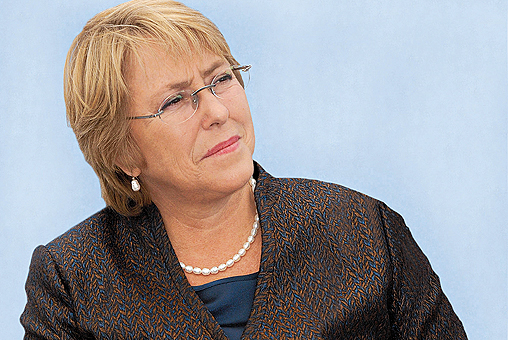Reading Time: 3 minutesAs a new president prepares to take office in the U.S., this seems like a good opportunity to evaluate both the progress that has been made and the challenges that remain in the relationship between the U.S. and Latin America, with an eye toward the future we face together.
The world is ripe for a renewed and strengthened multilateralism, and the support of the U.S. will be decisive.
There is no doubt that our region’s relationship with the U.S. is imperative. We share a common geography as well as common values, such as democracy, liberty and respect for human rights. This shared perspective will help us to tackle together the many global and regional problems we face. If there is a common denominator, it is that for all these global challenges, global solutions are needed.
The current global landscape is quite different from two decades ago. Globalization has deepened, and the world is moving toward new forms of governance. The U.S. continues to be the world’s major power. At the same time, the European Union’s influence is steadily increasing, and a handful of developing countries are consolidating into political and economic powers with a truly global reach. This means that the multilateral institutions designed more than six decades ago—essentially the UN and the international financial institutions—are increasingly inadequate for the management of today’s global challenges.
If those institutions are not democratized and redesigned to reflect today’s diverse and complex political environment, they will not be able to provide the kind of governance we need in the twenty-first century.
Today’s reality calls for a reformulation of the way in which we find solutions. We are optimistic. The recent past shows that the U.S.-Latin America relationship can move forward along a path of mutual understanding and common effort. In the early 1990s, the U.S. and the region embarked on a fruitful process of rapprochement, through which we managed to transform a traditionally distant—and at times hegemonic—relationship into a cooperative one.
Certainly there have been limitations, but we have also reached unprecedented levels of hemispheric cooperation. This suggests what can be achieved in the future.
We must work quickly and we must work together. The longer we wait, the more costly the solutions. I am convinced that Latin America and the U.S. can be partners in this endeavor.
There are many challenges. One is climate change. If we are unable to stop global warming, the effects will be irreversible for humanity and, indeed, for life on Earth. Just as important is concerted action in areas such as the international economy. Global trade talks have stagnated recently, and we need to move them on. And both current financial instability and international inflation tell us that we need to take a fresh look at the current system of international financial institutions. The same vision is applicable in other issues that cross boundaries and involve multilateral talks, such as migration security issues, terrorism, and organized crime—among others.
Latin America is ready to be a partner in addressing these challenges. The region has made great strides on the political, economic and social fronts. The successful democratization process of the 1980s and 1990s was responsible for the fact that our countries today enjoy unprecedented levels of freedom, and we are continuing to enlarge the democratic movement. Only a few years ago, it would have been unimaginable that a metalworker would govern Brazil, that Bolivia would have an indigenous president and that both Chile and Argentina would elect women presidents.
We have also made progress on the economic front. The region has enjoyed seven years of economic growth, despite a complicated international environment.
There is more to be done, of course. We must increase competitiveness, promote innovation and ensure that all members of our societies participate in the development process. We must make our societies more inclusive and socially cohesive. This is an outstanding debt that the policies of the so-called Washington Consensus were unable to address. There is, however, good reason to be optimistic. Just consider what has been accomplished in the last few years in Chile, Mexico, Brazil, and other countries where economic growth has been accompanied by a systematic and unprecedented reduction in poverty. The list of challenges is long. Yet our optimism stems from the fundamental fact that the world demands greater cooperation, and we are at a point where we can make that happen, while simultaneously breathing new life into our relationships with the United States.
The U.S. can make an enormous contribution in this new stage of global development by helping to deepen hemispheric cooperation and political dialogue. If successful, this will lead to a better future for our peoples.
ABOUT THE AUTHOR
Reading Time: 3 minutesMichelle Bachelet is the first under-secretary general and executive director of UN Women. She served as president of Chile from 2006 to 2010.
Tags: Chile,
Latin America,
Michelle Bachelet,
U.S. President-elect
Like what you've read?
Subscribe to AQ for more.
Any opinions expressed in this piece do not necessarily reflect those of Americas Quarterly or its publishers.





